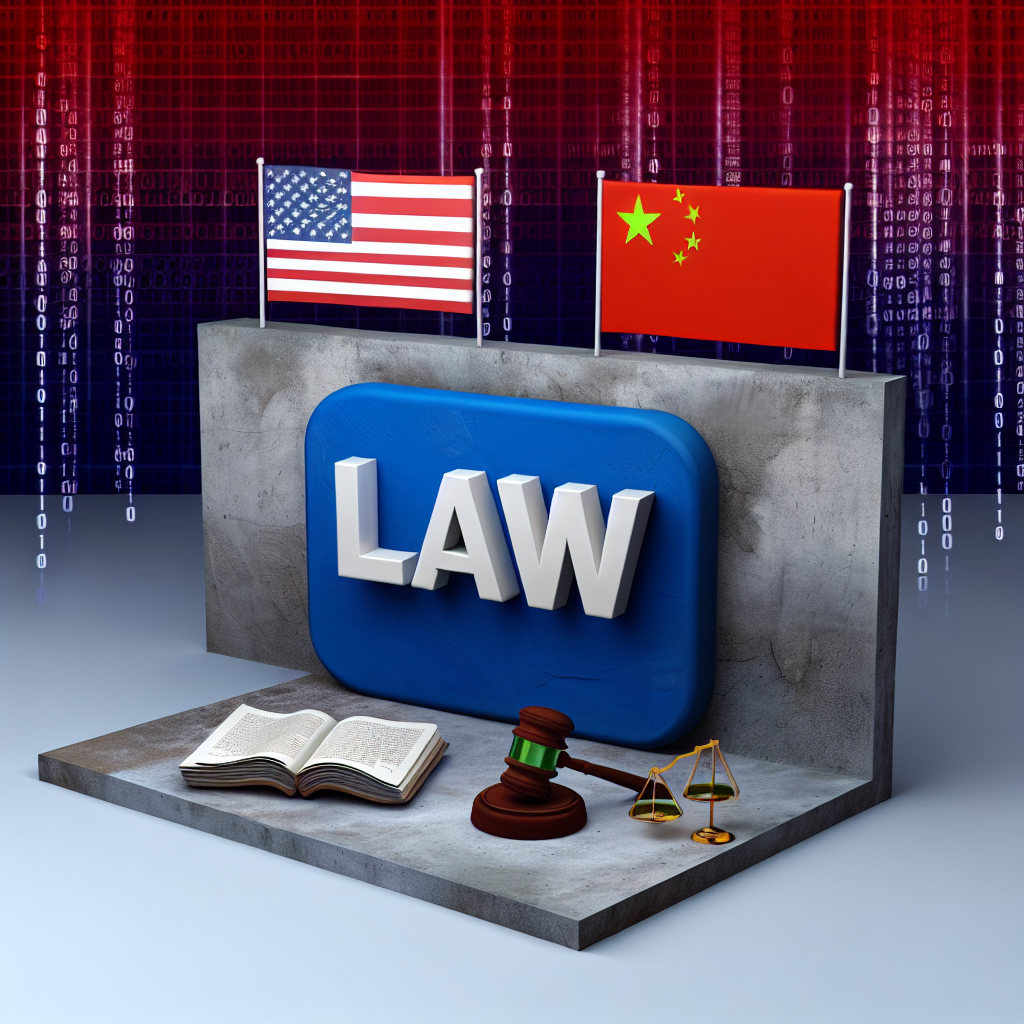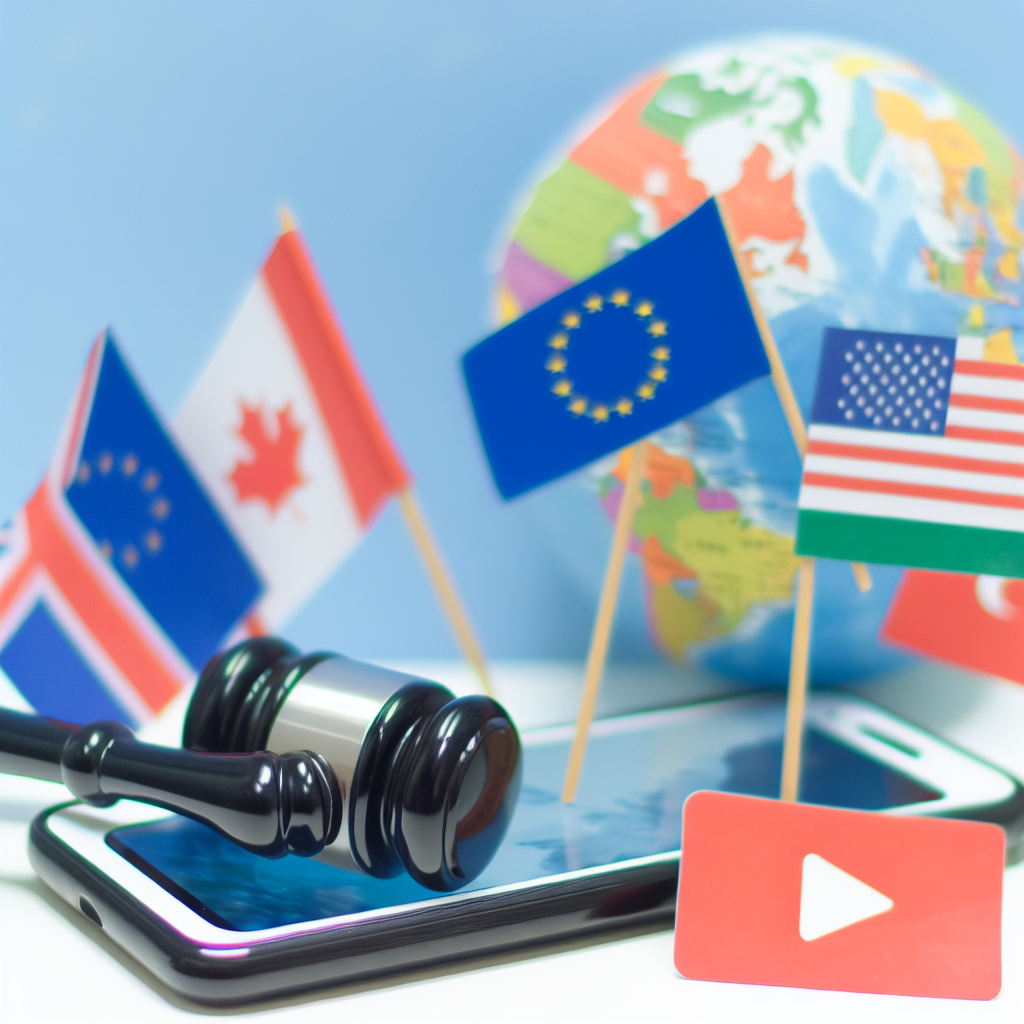The Impact of National Security Concerns on TikTok’s Future in the US
The Impact of National Security Concerns on TikTok’s Future in the US
TikTok, the popular social media platform known for its short-form videos, has been facing a series of legal challenges that could potentially impact its future in both the United States and China. One of the most significant challenges comes in the form of national security concerns raised by the US government.
The US government has expressed concerns that TikTok, which is owned by the Chinese company ByteDance, poses a threat to national security due to its data collection practices. The fear is that the app could be used to gather sensitive information about American citizens and potentially share it with the Chinese government.
In response to these concerns, the US government has taken several steps to address the issue. One of the most notable actions was an executive order signed by former President Donald Trump in August 2020, which sought to ban TikTok from operating in the US unless it was sold to an American company.
This executive order led to a series of legal battles between TikTok and the US government. TikTok argued that the ban violated its rights to free speech and due process, while the government maintained that it had the authority to take action to protect national security.
Ultimately, the ban was put on hold by a federal judge, and TikTok was given the opportunity to negotiate a deal with American companies to address the government’s concerns. This led to a proposed partnership between TikTok and Oracle, a US-based technology company, which would see Oracle taking over TikTok’s US operations.
However, the proposed partnership faced its own set of legal challenges. Some critics argued that the deal did not go far enough in addressing the national security concerns, as ByteDance would still retain a majority stake in TikTok. Others raised concerns about the potential influence that the Chinese government could still have over the app.
Despite these challenges, the proposed partnership between TikTok and Oracle received tentative approval from the US government in September 2020. However, the deal has yet to be finalized, and it remains to be seen whether it will ultimately be approved.
In addition to the legal challenges in the US, TikTok also faces potential legal hurdles in China. The Chinese government has recently implemented new regulations that could impact TikTok’s operations in the country. These regulations require companies to obtain government approval before exporting certain technologies, including those used by TikTok.
This move by the Chinese government could complicate TikTok’s ability to sell its US operations to an American company. It also raises questions about the future of TikTok’s operations in China, as the company may need to navigate a complex regulatory landscape to continue operating in its home country.
In conclusion, TikTok’s future in both the US and China is uncertain due to the legal challenges it faces. The national security concerns raised by the US government have led to a series of legal battles and negotiations, with the proposed partnership between TikTok and Oracle being the latest development. Meanwhile, in China, new regulations could impact TikTok’s operations and complicate its ability to sell its US operations. As the legal battles continue, the fate of TikTok hangs in the balance, with significant implications for both the company and its millions of users worldwide.
Analyzing the Potential Legal Consequences of TikTok’s Data Collection Practices

The rise of TikTok, the popular short-form video app, has been nothing short of meteoric. With over 2 billion downloads worldwide, it has become a cultural phenomenon, particularly among younger users. However, as TikTok’s user base continues to grow, so do the legal challenges it faces, both in the United States and China.
One of the primary concerns surrounding TikTok is its data collection practices. The app collects a vast amount of user data, including location information, device identifiers, and browsing history. This data is then used to personalize the user experience and serve targeted advertisements. While this is not uncommon among social media platforms, TikTok’s ties to China have raised eyebrows and sparked fears of potential data misuse.
In the United States, TikTok has faced scrutiny from lawmakers and regulators. The Committee on Foreign Investment in the United States (CFIUS) has launched an investigation into TikTok’s acquisition of Musical.ly, a social media app that was later merged with TikTok. The concern is that the Chinese government could access the data collected by TikTok, posing a national security risk. This investigation could potentially lead to TikTok being forced to divest its US operations or face other regulatory actions.
Furthermore, several lawsuits have been filed against TikTok in the United States, alleging violations of privacy laws. One such lawsuit claims that TikTok illegally collects and shares user data with third parties without consent. Another lawsuit accuses TikTok of sending user data to servers in China, again raising concerns about data security and privacy.
In China, TikTok faces a different set of legal challenges. The Chinese government has recently implemented stricter regulations on internet companies, particularly those that handle user data. These regulations require companies to obtain explicit user consent for data collection and storage and to store data within China’s borders. Failure to comply with these regulations can result in fines, suspension of services, or even criminal charges.
TikTok’s parent company, ByteDance, has been working to address these concerns and comply with Chinese regulations. It has established a data center in China to store user data and has implemented measures to obtain user consent for data collection. However, the Chinese government continues to closely monitor TikTok’s data practices, and any missteps could result in severe consequences for the company.
Navigating the legal landscape in both the United States and China presents a significant challenge for TikTok. The app must balance the demands of regulators and lawmakers in both countries while also addressing user concerns about data privacy and security. Failure to do so could result in significant legal and financial consequences for the company.
In conclusion, TikTok’s rapid growth has brought with it a host of legal challenges. The app’s data collection practices have raised concerns about privacy and national security, leading to investigations and lawsuits in the United States. In China, TikTok must navigate strict regulations on data handling and storage. The road ahead for TikTok is fraught with legal obstacles, and how the company addresses these challenges will determine its future success.
Examining the Role of Government Regulations in TikTok’s Operations in China
The legal challenges facing TikTok are not limited to the United States; they also extend to its operations in China. As a popular social media platform, TikTok has faced scrutiny from governments around the world due to concerns over data privacy and national security. In China, where the company’s parent company, ByteDance, is based, the government has imposed strict regulations on internet companies, including TikTok.
China’s government has a long history of regulating the internet and social media platforms. The country’s Great Firewall, a system of internet censorship, blocks access to foreign websites and monitors online activities. This level of control extends to domestic platforms like TikTok, which must comply with government regulations to operate within China.
One of the key challenges for TikTok in China is navigating the complex regulatory landscape. The Chinese government requires internet companies to store user data within the country and provide access to that data upon request. This poses a significant challenge for TikTok, as it operates globally and must comply with data protection laws in other countries as well.
Furthermore, the Chinese government has recently tightened its grip on internet companies, introducing new regulations that require them to undergo security reviews before listing on foreign stock exchanges. This move aims to prevent sensitive data from falling into the wrong hands and to ensure that companies like TikTok are not vulnerable to foreign influence.
Another legal challenge for TikTok in China is the requirement to censor content that the government deems inappropriate or sensitive. The Chinese government has a strict control over the flow of information and actively censors content that goes against its policies. This poses a dilemma for TikTok, as it must balance the demands of the Chinese government with the expectations of its global user base.
TikTok has made efforts to comply with Chinese regulations by establishing a local team to oversee content moderation and censorship. However, this has led to accusations of self-censorship and concerns over the platform’s ability to promote free expression. Critics argue that TikTok’s compliance with Chinese regulations compromises its commitment to user privacy and freedom of speech.
The legal challenges faced by TikTok in China are not unique to the platform. Many other internet companies operating in the country face similar hurdles. However, the global nature of TikTok’s operations adds an additional layer of complexity. The company must navigate the contrasting legal frameworks of different countries while ensuring compliance with Chinese regulations.
As TikTok continues to expand its user base and face scrutiny from governments worldwide, the legal challenges it faces in both the US and China will likely intensify. The company must find a delicate balance between complying with government regulations and protecting user privacy and freedom of expression. This will require ongoing dialogue with regulators, transparency in its operations, and a commitment to upholding the rights of its users.
In conclusion, TikTok’s legal challenges extend beyond the United States and into China. The Chinese government’s strict regulations on internet companies pose significant hurdles for TikTok, including data storage requirements and content censorship. Navigating the complex regulatory landscape in China while maintaining compliance with laws in other countries is a formidable task for the platform. As TikTok continues to grow, it must find ways to address these legal challenges while upholding user privacy and freedom of expression.


